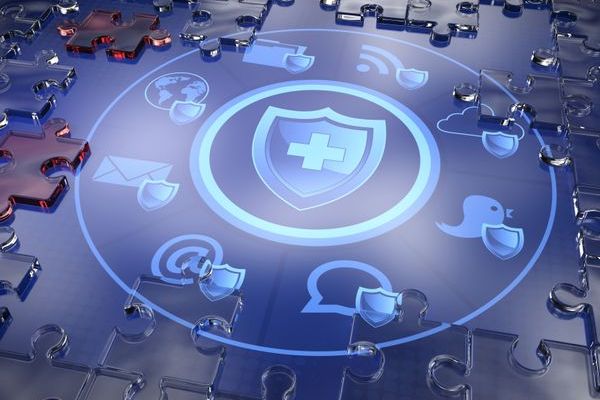Data as the First Line of Defense: Enhancing OT Resilience in Transport and Utilities and more
Guest blog by Ketan Bhadekar, Director of Technology & Platforms at VE3 #techUKOTSecurity
Ketan Bhadekar
Director of Technology & Platforms, VE3
Operational technologies have become the lifeblood of national critical infrastructures and industrial automation. Supervising the operational technologies (OTs) and industrial control systems (ICS) and aligning priorities and resources is essential. Different industries, including manufacturing, healthcare, logistics, and utilities, are leveraging OT systems for seamless workflows.
At the heart of all these technology-driven transformations and automation lies the data. Data is not an emerging operational tool but acts as the frontier to defend against cyberattacks in enterprise-grade systems. Thus, protecting these cyber-physical systems, ranging from production line automation to building security controls – has become a crucial requirement. This article delivers a comprehensive walkthrough of how data becomes the first line of defense against cyber threats, technological disruptions, and operational failures.
Types of Operational Technologies (OTs)
Operational Technology (OT) refers to specialized systems that control and automate physical processes across industries. Let’s explore the main types:
1. Industrial Control Systems (ICS):
ICS, including SCADA and DCS, form the backbone of manufacturing and processing industries. SCADA enables large-scale monitoring, while Distributed Control System (DCS) manages distributed controllers for continuous industrial operations.
2. Utility Management Systems:
These systems oversee power generation, distribution, and usage. Smart grids use advanced metering and automation to balance demand and supply. Renewable setups use specialized controllers for solar and wind energy.
3. Transportation & Critical Infrastructure:
Smart transportation systems use sensors and algorithms to manage traffic, reduce congestion, and enhance public safety. OT also supports railway signaling, aviation control, and critical infrastructure stability.
4. Robotics & Automation:
Industries use robots and AGVs to automate repetitive or hazardous tasks, enhancing efficiency and accuracy. These systems integrate with PLCs and SCADA for smooth operations across logistics, healthcare, and more.
Challenges with Legacy Non-Data-Driven OTs
- No real-time insights for predictive decision-making. Everything is reactive.
- Poor visibility into operations due to manual workflow or analog systems.
- Vulnerable to cyberattacks, especially after integration with IT networks and IoT systems.
- Difficulty in updating, scaling, or integrating with new technologies like blockchain and cloud.
Traditional vs. Modern Roles of OT in Transport and Utilities
Traditional, isolated, and manual operational technologies have undergone massive transformations across various nations. Most of them went from human-driven to sensor-based systems. As we all know, IoT systems are prone to cyber threats – whether they are deployed in Critical National Infrastructure settings or elsewhere in the UK industry, it is vital to secure these OT systems.
Role of Data-driven OTs in Transport
Traditional OT in transport relied heavily on manual control for rail signals, traffic lights, and air traffic systems. Today, with sensors, IoT, and RPA, data enables predictive models that help forecast traffic congestion, demand patterns, and potential risks in goods transport—shifting from reactive to intelligent, analytics-driven operations.
Role of Data-driven OTs in Utilities
Utilities like power, water, and gas still depend on SCADA, RTUs, and PLCs for core operations. However, as cyber threats grow, real-time data becomes vital. It allows security teams to detect attacks, pinpoint failures, and respond quickly—making OT systems more secure, adaptive, and future-ready.
Real-time Data: The Catalyst for Modernizing OT & Its Security
Real-time data is a key driver in transforming OT systems from isolated, manual setups into smart, secure, and adaptive infrastructures. Here's how data modernizes critical industrial operations:
- Bridging IT and OT: Traditional OT systems like robots, PLCs, and SCADA relied on manual oversight. Today, the integration of OT with IT powered by data and machine learning enables intelligent automation and actionable insights. Transportation uses this synergy for seamless logistics, while utilities depend on it for safety and risk management.
- From Reactive to Predictive: In the past, maintenance and security were reactive. Now, with real-time sensor data temperature, vibrations, RPMs, shutdowns, organizations can monitor system health and predict threats before disruptions occur. This proactive approach cuts downtime and boosts reliability.
- Enhancing Operational Efficiency: Manual efficiency checks are risky and time-consuming. Data-driven OT systems offer visibility into energy use, machine performance, and resource consumption. Dynamic control systems self-adjust based on performance metrics, and smart meters help manage loads and prevent overconsumption.
- Empowering Data-Driven Decisions: Industries across healthcare, manufacturing, and logistics now rely on real-time data for informed decision-making. Trends, alerts, and forecasts replace guesswork. Technologies like RPA and smart sensors enhance automation, while leaders and AI systems alike depend on clean, accurate data for fast, strategic choices.
Data-driven Operational Technologies in Tackling Cyber Threats
In today’s cut-throat market, even a half-hour lag can cost millions. The 2025 cybersecurity reports by the World Economic Forum warns of rising global threats—ransomware, AI-driven exploits, and stealthy infostealers. To combat this, technologically advanced nations like the UK are securing their Operational Technologies (OTs) with data-driven and AI-powered strategies.
Data serves as the first line of defense by enhancing visibility, threat detection, and incident response across critical infrastructure. With the right insights and security practices, OT systems can seamlessly integrate with IT to build cyber resilience.
By leveraging real-time data from sensors, control systems, and network logs, organizations can continuously monitor operational health, establish behavioral baselines, detect anomalies, and proactively address potential breaches.
Best Practices to Leverage Data for Operational Technologies and Its Security
- Define a centralized control system and dashboard and establish a common goal, data standard, and interoperability frameworks.
- Organizations should prioritize cyber security and data hygiene. All network infrastructures, like IoT devices, sensors, and end devices, should have security measures such as encryption, access control, anomaly detection, and endpoint protection for data-rich OT systems.
- Organizations should promote predictive measures rather than a reactive approach. With data-driven insights for predictive maintenance and grid optimization, organizations can enhance return on investment (ROI) and strengthen stakeholder support.
- Leverage AI solutions that run on clean and precise datasets. Appropriate and clean data can help autonomous systems and robotic processes learn and understand the environment nicely. It will ultimately reduce automated operational breakdown while increasing uptime.
- Storing data in the cloud and enhancing network speed with 5G can boost operational efficiency while delivering real-time insights into data-driven actions. Organizations should also avoid vendor lock-in to ensure flexible integration with future technologies.
Wrapping Up
We hope this article has provided a comprehensive understanding of how nations can leverage data across various Operational Technologies (OTs). We explored diverse OT sectors where data-driven approaches enhance security, strengthen cyber resilience, and improve return on investment. Operational Technology is no longer just about automation and control.
By integrating real-time data, OT systems become more predictive, efficient, and resilient—improving safety, reliability, and long-term sustainability. Future-ready infrastructure, built on scalable and secure OT, will be key to national progress in the decades ahead. To know more about our solutions visit us or contact us directly.
Cyber Resilience Programme activities
techUK brings together key players across the cyber security sector to promote leading-edge UK capabilities, build networks and grow the sector. techUK members have the opportunity to network, share ideas and collaborate, enabling the industry as a whole to address common challenges and opportunities together. Visit the programme page here.
Upcoming events
Latest news and insights
Learn more and get involved
Cyber Resilience updates
Sign-up to get the latest updates and opportunities from our Cyber Resilience programme.
Meet the team

Jill Broom
Head of Cyber Resilience, techUK
Jill leads the techUK Cyber Resilience programme, having originally joined techUK in October 2020 as a Programme Manager for the Cyber and Central Government programmes. She is responsible for managing techUK's work across the cyber security ecosystem, bringing industry together with key stakeholders across the public and private sectors. Jill also provides the industry secretariat for the Cyber Growth Partnership, the industry and government conduit for supporting the growth of the sector. A key focus of her work is to strengthen the public–private partnership across cyber to support further development of UK cyber security and resilience policy.
Before joining techUK, Jill worked as a Senior Caseworker for an MP, advocating for local communities, businesses and individuals, so she is particularly committed to techUK’s vision of harnessing the power of technology to improve people’s lives. Jill is also an experienced editorial professional and has delivered copyediting and writing services for public-body and SME clients as well as publishers.
- Email:
- [email protected]
- Website:
- www.techuk.org/
- LinkedIn:
- https://www.linkedin.com/in/jill-broom-19aa824
Read lessmore

Annie Collings
Senior Programme Manager, Cyber Resilience, techUK
Annie is the Programme Manager for Cyber Resilience at techUK. She first joined as the Programme Manager for Cyber Security and Central Government in September 2023.
In her role, Annie supports the Cyber Security SME Forum, engaging regularly with key government and industry stakeholders to advance the growth and development of SMEs in the cyber sector. Annie also coordinates events, engages with policy makers and represents techUK at a number of cyber security events.
Before joining techUK, Annie was an Account Manager at a specialist healthcare agency, where she provided public affairs support to a wide range of medical technology clients. She also gained experience as an intern in both an MP’s constituency office and with the Association of Independent Professionals and the Self-Employed. Annie holds a degree in International Relations from Nottingham Trent University.
- Email:
- [email protected]
- Twitter:
- anniecollings24
- LinkedIn:
- https://www.linkedin.com/in/annie-collings-270150158/
Read lessmore

Olivia Staples
Junior Programme Manager - Cyber Resilience, techUK
Olivia Staples joined techUK in May 2025 as a Junior Programme Manager in the Cyber Resilience team.
She supports the programs mission to promote cyber resilience by engaging key commercial and government stakeholders to shape the cyber resilience policy towards increased security and industry growth. Olivia assists in member engagement, event facilitation and communications support.
Before joining techUK, Olivia gained experience in research, advocacy, and strategic communications across several international organisations. At the Munich Security Conference, she supported stakeholder engagement and contributed to strategic communications. She also worked closely with local and national government stakeholders in Spain and Italy, where she was involved in policy monitoring and advocacy for both public and private sector clients.
Olivia holds an MSc in Political Science (Comparative Politics and Conflict Studies) from the London School of Economics (LSE) and a BA in Spanish and Latin American Studies from University College London (UCL).
Outside of tech, Olivia enjoys volunteering with local charities and learning Norwegian.
- Email:
- [email protected]
Read lessmore
Authors
Ketan Bhadekar
Director of Technology & Platforms, VE3












